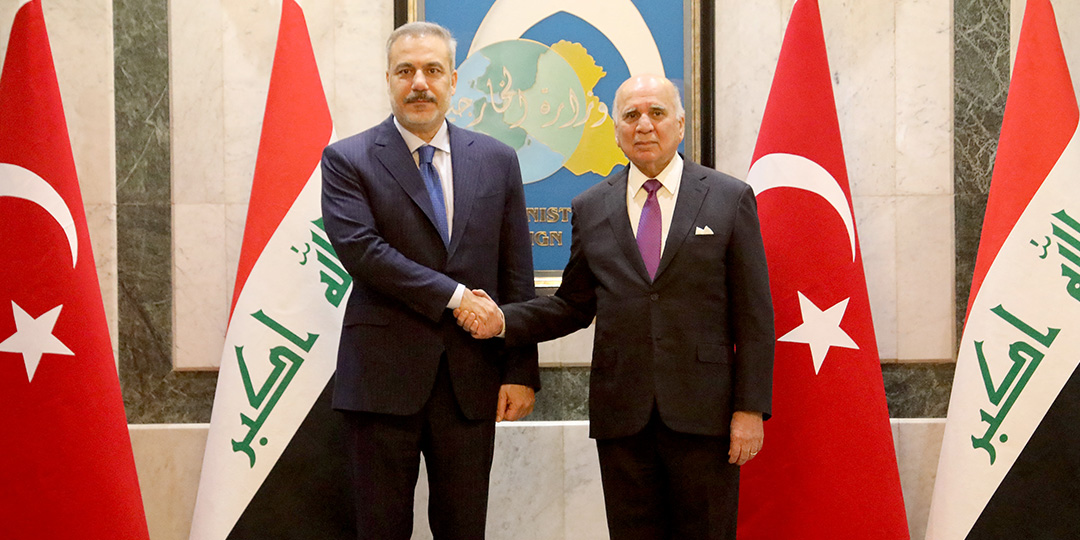Iraq and Turkey signed on Sunday an implementation mechanism for a framework cooperation agreement on water management, as both countries face an unprecedented drought affecting the Tigris and Euphrates rivers.
Iraq is enduring one of the driest years and worst water crises in its modern history due to low rainfall, rising temperatures, and reduced water releases from neighboring Turkey and Iran. The historic Tigris and Euphrates rivers, which have sustained Mesopotamia for millennia, have reached record-low levels.
Turkey is also grappling with severe drought, as rainfall during the first nine months of 2025 dropped to its lowest level in 52 years, according to the Turkish Meteorological Service.
Iraqi Prime Minister Mohammed Shia Al-Sudani’s office said the agreement “will serve as one of the sustainable solutions to Iraq’s water crisis through major joint projects in the water sector.”
Turhan Al-Mufti, the Prime Minister’s water advisor, told AFP that these projects will include “dams, desalination plants, and water pumping and treatment stations” across Iraq over the next 15 years, with Turkey being “one of the main executing partners.” He added that the mechanism also includes “provisions ensuring the sustainable flow of water into Iraq.”
While the Turkish Foreign Ministry did not disclose details of the agreement signed between Foreign Minister Hakan Fidan and his Iraqi counterpart Fuad Hussein in Baghdad under Al-Sudani’s patronage, Hussein said during a joint press conference that this document “is the first in the history of bilateral relations to regulate water management.”
Fidan noted that “intensive efforts have been made over the past two and a half years to find better methods of water use between Turkey and Iraq and to jointly rehabilitate Iraq’s water and irrigation infrastructure.”
Baghdad has repeatedly accused Turkey and Iran of building dams that drastically reduce the flow of the Tigris and Euphrates upon entering Iraq. Authorities say the country now receives less than 35% of its expected water share, forcing it to release more water from its reservoirs than it receives.
According to Iraqi officials, total water reserves have dropped below 8% of storage capacity—from around 10 billion cubic meters in late May to 8 billion in early September. The Euphrates River has also reached its lowest recorded level this summer.
With a population exceeding 46 million, Iraq remains one of the countries most affected by climate change. Persistent drought and reduced rainfall have forced authorities to restrict water use and shrink agricultural lands to prioritize daily water needs, especially during the summer months.








